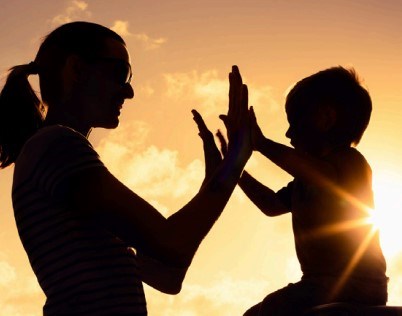Details emerging from the tragic death of a former Cochrane elementary school teacher allegedly shot by her estranged husband over the Christmas break have served as a sharp reminder of how devastating domestic violence can be.
Followers of the story may be left to ponder how to recognize and deal with the warning signs, whether in their own lives or in the lives of loved ones. It was a harsh reminder of the scourge of domestic violence.
Former Elizabeth Barrett School teacher and mother of three Ania Kaminski was murdered at her home in Calgary on Dec. 29. Her father was also killed, and her husband Benedict Kaminski’s body was found the following day near Water Valley.
Media reports and social media chronicled recent events between the couple. Kaminski’s brother said the relationship had been rocky for years and a Christmas Day dinner blow-up triggered the tragic events that orphaned their young children. He said his sister told him she was preparing to leave her husband.
Resources are available for those – or friends and relatives of those – looking for help. The holidays are a particularly stressful time for some, and may be a prime time for escalation of ongoing relationship tensions.
According to Psychology Today, heightened stress and expectations during the holidays can increase the tension in relationships and families. Alcohol consumption and substance use during this time can escalate conflict, increasing the risk of abuse, and isolation limits access to support and encourages abuse.
In a December article on the subject in that journal, one of the author’s clients is quoted as saying “The holidays usually feel less like a time of celebration and more like a countdown to the inevitable blowup.”
In Cochrane and area, Big Hill Haven provides assistance to adults experiencing violence and abuse through outreach support and emergency shelter. They also create awareness through prevention, intervention and educational programs.
Wanda McGinnis is the executive director of Big Hill Haven.
“The recent loss of Ania and her father is a profound tragedy. At Big Hill Haven, we recognize that this devastating event has deeply impacted many, including the community of Cochrane, where Ania was a teacher who educated, supported, and became an integral part of the lives of countless young children and their parents,” McGinnis said.
Part of the tragedy of this event, McGinnis said, is that it underscores that domestic violence affects us all.
“Big Hill Haven is committed to supporting the community as each person navigates this incredibly difficult time.”
McGinnis stressed that if people know someone who requires support or is in danger, they should reach out by contacting Big Hill Haven at 403-796-6564 or FearIsNotLove at 403-234-7233.
She said they are there to support those experiencing violence, with a commitment to focusing on primary prevention.
“We aim to work with the community of Cochrane to ensure we are doing everything possible to stop violence before it starts,” she said.
In 2023-2024, more than 2240 people attended family violence prevention and education opportunities through Big Hill Haven. (This year’s numbers haven’t been compiled, but McGinnis said they’re on track to reach the same kind of totals.)
A recent survey highlighted some of the ways Bill Hill Haven (BHH) is making a difference.
Fully 95 per cent of survey respondents agreed or strongly agreed that after accessing BHH services they could recognize signs of abuse, as opposed to zero respondents before accessing BHH services. And 100 per cent of survey respondents agreed or strongly agreed that after accessing BHH services they knew where to go to get the resources they need, as opposed to only 18 per cent of respondents before accessing BHH services.
In 2023 Big Hill Haven supported 178 adults and children by providing safety and support. 39 people in safe suites with over 2000 hours of counselling, and 1600 people with prevention and education.
As a result of all that work, 86 per cent of clients stated they felt safe after accessing the Haven’s services, compared to 9 per cent who said so before; 81 per cent could recognize the signs of a healthy relationship compared to 0 per cent before; 95 per cent could recognize the signs of abuse compared to 0 per cent before, and 100 per cent knew where to go for help compared to 18 per cent before.
Another survey said rural individuals and families in Alberta experience domestic violence at a rate 75 per cent higher than in cities.




